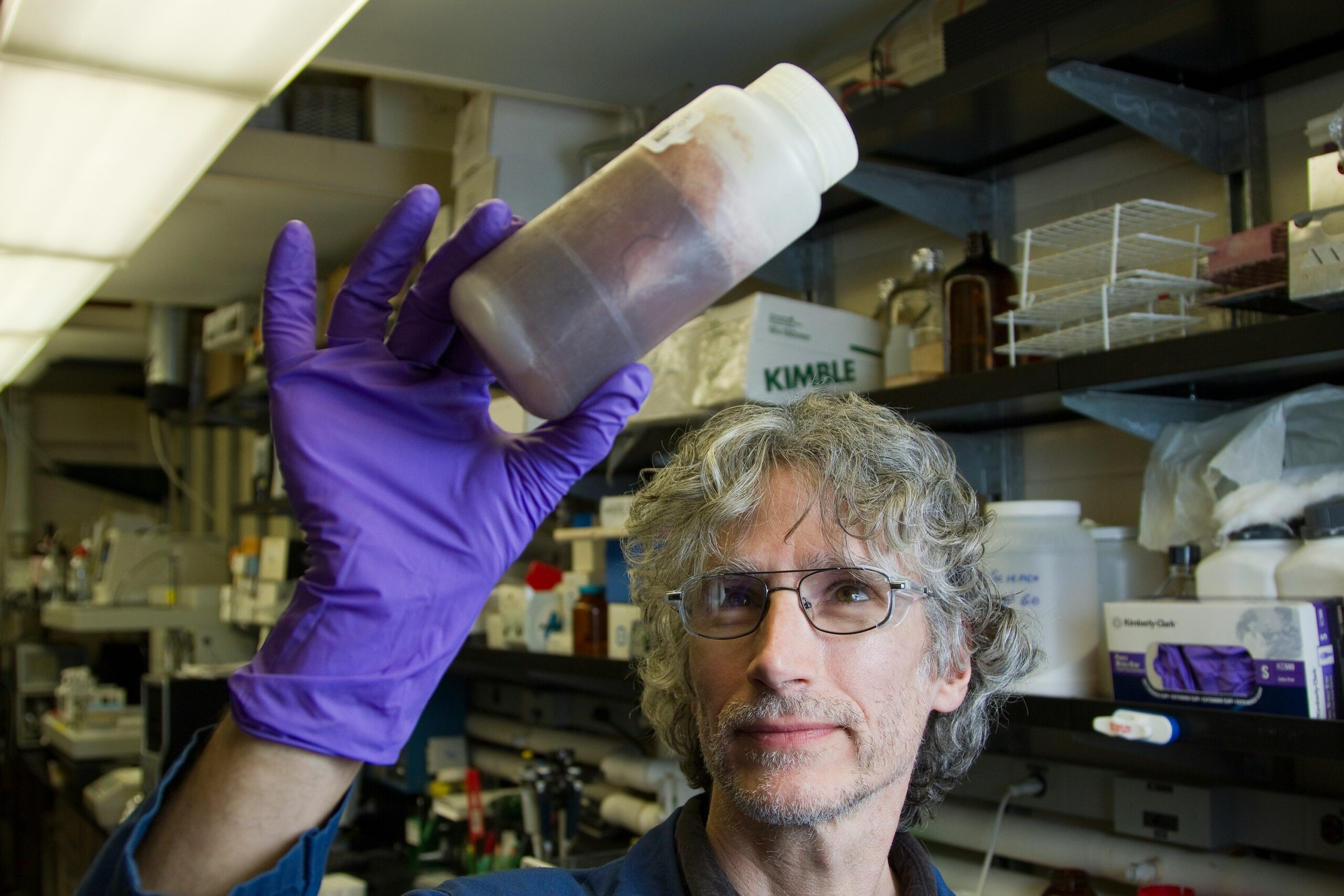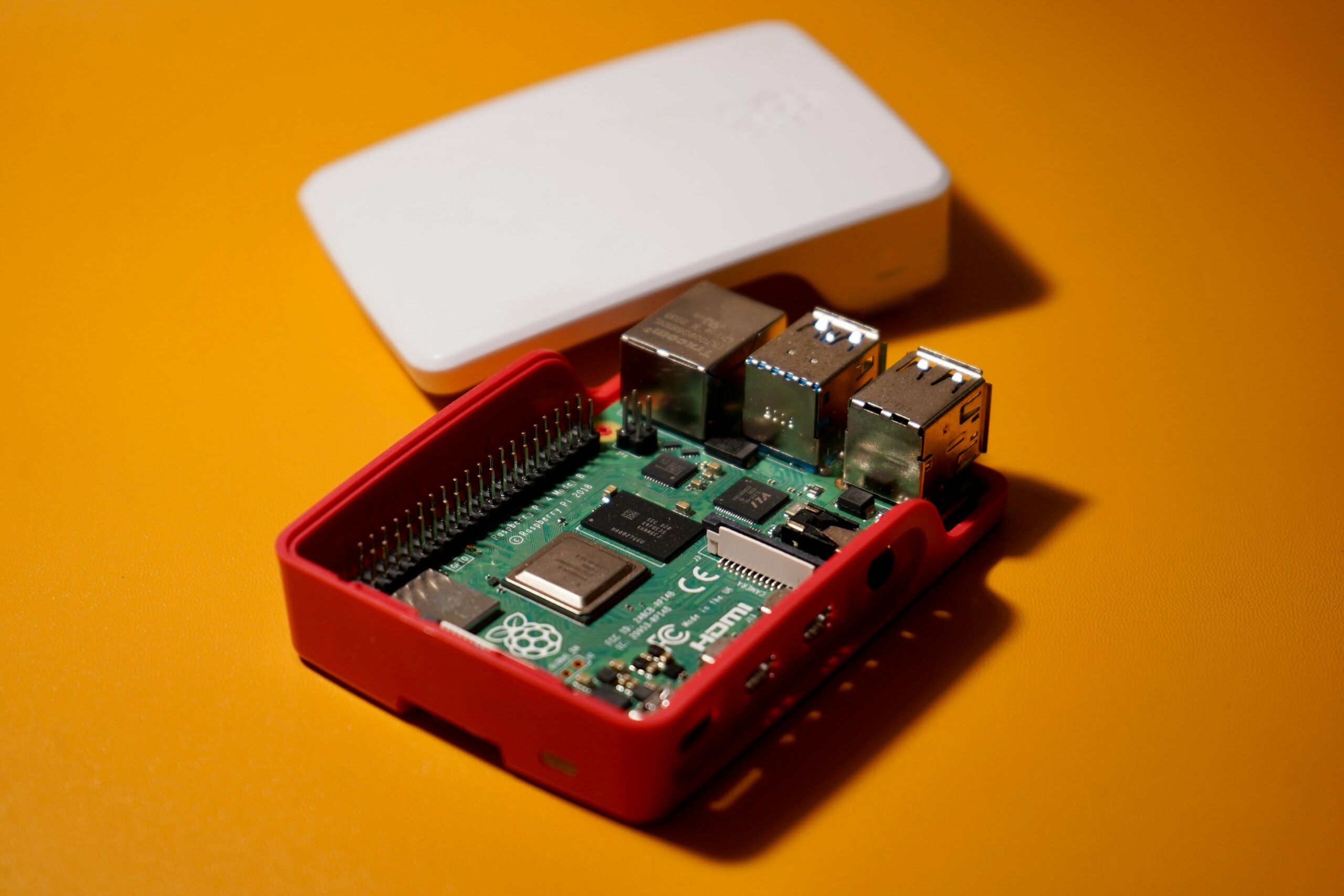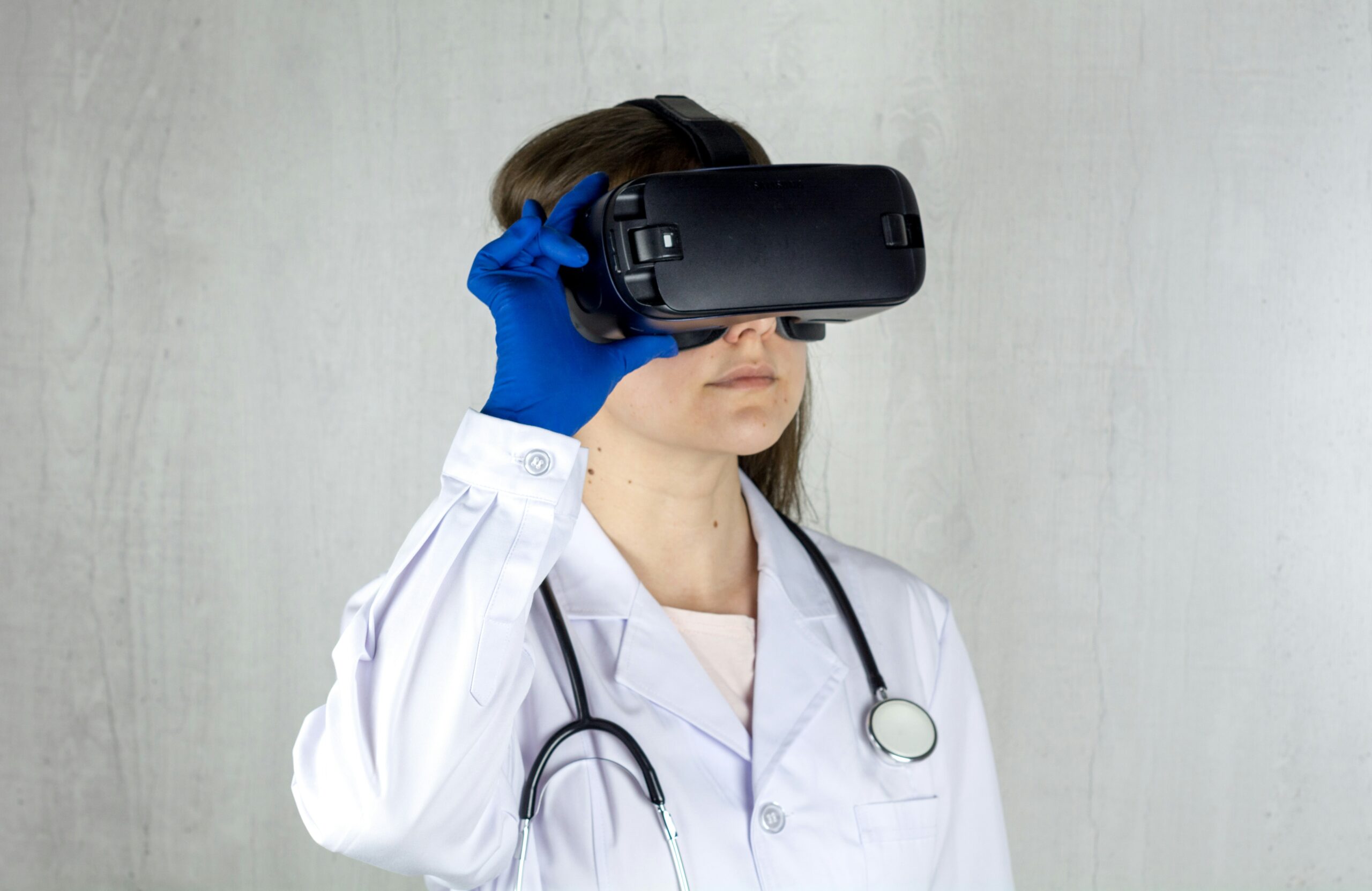Biotechnology Breakthroughs: Are We Playing God in 2024?
 Photo by National Cancer Institute on Unsplash
Photo by National Cancer Institute on Unsplash Introduction to Biotechnology in 2024
Biotechnology, as a multidisciplinary field, encompasses the integration of biological sciences and technology to create innovative solutions that address complex challenges in various sectors, including medicine, agriculture, and environmental science. In 2024, biotechnology has emerged as a vital driver of change, offering unprecedented strategies to improve health outcomes, enhance food security, and sustain ecological balance.
In modern medicine, biotechnological advances are notably reshaping the landscape of treatment and prevention. Techniques such as gene therapy, CRISPR gene editing, and personalized medicine are now at the forefront, enabling healthcare professionals to target diseases at a molecular level. These advancements allow for tailored therapies that can significantly improve patient outcomes, pushing the boundaries of traditional treatment paradigms. As we delve deeper into the genetic underpinnings of diseases, the potential to eradicate genetic disorders becomes a real possibility, raising significant ethical considerations about the nature of human intervention in genetics.
Similarly, biotechnology’s role in agriculture is furthering the development of sustainable practices that can address the growing global food demand. Through genetic modifications and biopesticides, scientists create crops that are not only resistant to pests and diseases but also require fewer resources such as water and fertilizers. This innovation is crucial in combating the adverse effects of climate change on food production, while also highlighting the ethical implications of altering natural ecosystems for enhanced agricultural outputs.
Environmental biotechnology also plays a critical role, particularly in waste management and bioremediation. By utilizing microorganisms to degrade pollutants, we can mitigate environmental damage and promote ecological restoration. As these biotechnological breakthroughs challenge our understanding of life and its complexities, they prompt a profound exploration of the moral boundaries we navigate when engaging in genetic manipulation. The inquiry into whether humanity is “playing God” becomes ever more pertinent as these technologies evolve and integrate into society, raising fundamental questions about the ethics of our advancements.
Recent Breakthroughs in Genetic Engineering
Recent advancements in genetic engineering have revolutionized the landscape of biotechnology, particularly through innovative techniques such as CRISPR, gene therapy, and synthetic biology. CRISPR (Clustered Regularly Interspaced Short Palindromic Repeats) has emerged as a powerful tool for precise DNA modification, allowing scientists to target specific sequences in the genome. This technology has made it possible to edit genes with unprecedented accuracy, thus facilitating the correction of genetic disorders at their source. For instance, successful applications of CRISPR have been observed in treating conditions like sickle cell anemia and certain types of muscular dystrophy, demonstrating its potential in the realm of gene therapy.
Moreover, synthetic biology has enabled researchers to design and construct new biological parts, devices, and systems. This field is essential for developing crops with enhanced resilience to environmental challenges. By integrating genetic engineering principles, scientists have successfully created genetically modified organism (GMOs) variants that can withstand drought, pests, and diseases, thereby contributing to food security. Through these efforts, agricultural practices are being significantly improved, providing a pathway for sustainable farming that meets the demands of a growing global population.
However, the advancements in genetic engineering also raise ethical questions that cannot be overlooked. The capability to modify organisms, including humans, leads to debates about the moral implications of ‘playing God’. Concerns surrounding potential unintended consequences, such as ecological disruption or social inequality, inform discussions about the regulations needed to govern the use of these powerful biotechnological tools. As society continues to grapple with these issues, it is crucial to balance innovation with ethical considerations, ensuring that the benefits of genetic engineering technologies can be harnessed responsibly.
The Role of Synthetic Biology in Modern Solutions
Synthetic biology is a revolutionary field that blends biology with engineering principles to design and construct new biological entities and systems. This innovative discipline enables scientists to manipulate the fundamental building blocks of life, such as DNA, to create customized biological parts that can address some of the world’s pressing challenges. Through this synthesis, synthetic biology plays a pivotal role in developing sustainable solutions across various sectors, including energy, materials, and healthcare.
One prominent application of synthetic biology is in the production of biofuels. By engineering microorganisms, researchers can enable them to convert biomass into renewable energy sources, thereby reducing dependence on fossil fuels and contributing to environmental sustainability. These biofuels generated from engineered organisms are not only renewable but can also significantly lower greenhouse gas emissions compared to traditional fuel sources.
Another notable application is the creation of biodegradable plastics. With the global crisis of plastic waste, synthetic biology offers promising alternatives by enabling the design of materials that can naturally decompose. By utilizing engineered organisms to produce these bioplastics, we can mitigate environmental pollution while maintaining functionality similar to conventional plastics.
Additionally, synthetic biology is making strides in the healthcare sector. For instance, researchers are developing genetically modified organisms capable of producing pharmaceuticals, which can streamline the drug development process and increase accessibility. This area of innovation raises important ethical questions about the extent of human intervention in natural processes, prompting a dialogue about the balance between advancing technology and respecting the integrity of ecosystems.
As we embrace synthetic biology’s potential, it is crucial to navigate the delicate interplay between human innovation and nature’s course. The field holds the promise of significant advancements, offering solutions that can enhance our quality of life while addressing sustainability challenges. Understanding its implications will be vital as we move forward in integrating biotechnology into our daily lives.
Ethical Implications of Biotechnology
As biotechnological advancements continue to accelerate, ethical implications surrounding these breakthroughs have risen to the forefront of public discourse. The potential for altering human embryos has emerged as a significant concern, raising questions about the morality of such actions. The debate often centers around what constitutes acceptable levels of intervention in human genetics. Altering embryos may have the potential to eliminate genetic disorders, offering substantial benefits to future generations. However, it also risks creating a new class of ‘designer babies,’ where parents might select traits based on personal preferences rather than medical necessity, leading to ethical dilemmas about equity, consent, and the societal implications of such choices.
Moreover, the prospect of unequal access to advanced therapies can exacerbate existing disparities within healthcare systems. As biotechnological innovations become available, they may be prohibitively expensive, limiting access only to a privileged few. This situation raises ethical questions regarding fairness and justice in healthcare. If only certain socioeconomic classes can benefit from these breakthroughs, it could lead to a wider gap between the affluent and the underprivileged, ultimately challenging the moral fabric of society. The ethical concerns extend to issues of consent and the implications of making irreversible changes without fully understanding the long-term consequences.
Given these complexities, it is vital to develop comprehensive ethical guidelines that govern biotechnological practices. Establishing a framework that encourages responsible research and application is essential to mitigate potential risks while maximizing the benefits of innovation. Continuous dialogue among scientists, ethicists, and policymakers is crucial to navigate the challenges posed by biotechnology effectively. This collaborative effort aims to ensure that advancements in the field align with societal values and respect human dignity, ultimately fostering a more equitable access to biotechnological breakthroughs.
Public Perception and Misconceptions
The rapid advancements in biotechnology have sparked a complex dialogue among the public, shaped by a mixture of curiosity, apprehension, and misinformation. Surveys conducted in recent years indicate that while many individuals recognize the benefits of biotechnological innovations, including enhanced medical treatments and crop yields, a notable proportion of the population harbors significant concerns regarding ethical implications. These apprehensions often revolve around the concept of “playing God,” a phrase that has permeated discussions surrounding genetic engineering, cloning, and synthetic biology.
Media portrayals also play a critical role in shaping public opinions about biotechnological breakthroughs. News headlines often emphasize dramatic narratives—whether concerning genetically modified organisms (GMOs) or gene editing technologies like CRISPR—frequently highlighting potential dangers rather than innovations or therapeutic successes. Consequently, these portrayals can exacerbate fears and foster misconceptions about the capabilities and intentions of biotechnology experts. Misrepresentations in films and literature, where scientists are portrayed as reckless or morally ambiguous figures, further deepen public distrust and confusion regarding these advancements.
Cultural beliefs and values significantly influence how individuals interpret biotechnological developments. In societies where religious views prioritize naturalism and traditional doctrines, the notion of manipulating life at a genetic level can be particularly contentious. Conversely, in cultures more accepting of scientific explorations, there tends to be greater endorsement for biotechnological solutions aimed at improving health and alleviating suffering. Understanding these underlying cultural dynamics is essential for effectively communicating the benefits and risks associated with biotechnology.
Overall, addressing these misconceptions and fostering open dialogues around biotechnology can bridge the knowledge gap and help cultivate a more informed public perspective. By promoting scientific literacy and encouraging public engagement, stakeholders can mitigate fears related to “playing God” while emphasizing the potential positive impacts of biotechnology on society in 2024 and beyond.
Policy and Regulation in Biotechnology
The landscape of biotechnology is rapidly evolving, prompting a continuous need for both national and international policies and regulations. These regulatory frameworks are crucial for managing the complexities associated with biotechnological innovations, particularly regarding safety, ethics, and environmental impacts. Policymakers face the dual challenge of fostering innovation while ensuring public health and safety. This balancing act is further complicated by the rapid pace of scientific advancements, which can outstrip existing regulatory mechanisms.
At the national level, various governments have instituted specific laws and guidelines designed to govern biotechnological research and applications. In many cases, these regulations are informed by rigorous risk assessments and safety evaluations. For instance, the U.S. has established the National Institutes of Health (NIH) guidelines for the funding of research involving recombinant or synthetic nucleic acid molecules. Similar frameworks exist in other countries, designed to regulate genetic engineering, synthetic biology, and cellular therapies.
Internationally, organizations such as the World Health Organization (WHO) and the Food and Agriculture Organization (FAO) have made strides in establishing collaborative guidelines aimed at harmonizing biotechnological regulations across borders. However, discrepancies in national interests can lead to regulatory fragmentation, posing additional challenges to the safety of biotechnological products. These challenges underscore the need for cooperative efforts to create an integrated regulatory environment spanning different jurisdictions.
Furthermore, ethical compliance is an integral component of biotechnology policies. As new technologies emerge, such as gene editing and personalized medicine, regulators must address ethical considerations connected to human rights, environmental sustainability, and animal welfare. Stakeholder engagement is vital, ensuring that a diverse array of voices is heard during policy formulation, thereby cultivating a regulatory landscape that is both responsible and conducive to scientific progress. The future of biotechnology hinges on our ability to navigate these complex regulatory waters effectively.
Case Studies of Biotechnology Advancements in 2024
In 2024, significant advancements in biotechnology have sparked both excitement and ethical debates across various sectors, including agriculture, pharmaceuticals, and environmental conservation. One notable success story comes from the agricultural sector, where gene-editing tools such as CRISPR have been employed to develop crops with enhanced resistance to climate-related stresses. For instance, researchers successfully created a drought-resistant wheat variety that not only maintains yield levels during dry spells but also reduces the need for irrigation. This breakthrough holds promise for food security, particularly in regions affected by extreme weather conditions.
In the pharmaceutical industry, the emergence of personalized medicine has made headlines. A groundbreaking case involved a novel gene therapy that was tailored to treat a rare genetic disorder affecting a small population. By utilizing advanced genetic sequencing techniques, scientists identified specific mutations responsible for the condition and formulated a treatment that modifies the patient’s genetic makeup to correct these abnormalities. While the initial results showed great promise, the ethical implications surrounding gene editing for therapeutic purposes have led to ongoing discussions regarding the appropriateness of altering human DNA.
Environmental conservation has also witnessed notable biotechnological strides in 2024. A major initiative involved the use of genetically engineered bacteria designed to absorb and neutralize pollutants in water bodies. These microorganisms are capable of breaking down toxic substances, significantly improving water quality in affected areas. However, the deployment of such bioremediation techniques raises questions about potential unforeseen ecological consequences and the long-term viability of introducing genetically modified organisms into natural ecosystems.
These case studies illustrate the spectrum of biotechnology advancements we are experiencing in 2024. The balance between innovation and ethical considerations continues to be a central theme in discussions surrounding these breakthroughs. As society grapples with the question of whether we are playing God, the implications of these advancements warrant thoughtful examination and dialogue.
Future Trends in Biotechnology
The landscape of biotechnology is rapidly evolving, and over the next decade, we can anticipate several transformative trends that could significantly alter healthcare, agriculture, and environmental management. One prominent trend is the advancement of CRISPR and gene-editing technologies. As we refine our capabilities in precise gene alterations, potential applications could include the eradication of genetic disorders and enhanced strains of crops that require fewer resources. These innovations promise not only to address current health challenges but also to contribute to sustainable agricultural practices.
Another area poised for significant progress is synthetic biology. This field, which combines biology and engineering principles, aims to design and construct new biological parts and systems. Emerging technologies in synthetic biology could lead to the creation of biofuels, biodegradable plastics, and even novel pharmaceuticals. The emphasis on renewable resources and sustainable production methods will help reduce reliance on fossil fuels, thereby mitigating environmental degradation and promoting a circular economy.
The integration of artificial intelligence (AI) in biotechnology represents another noteworthy trend. AI algorithms are increasingly being utilized to analyze vast datasets, accelerating drug discovery, and personalizing treatment plans through precision medicine. This synergy between AI and biotechnology could enhance our understanding of complex biological systems, leading to more effective and targeted therapies.
Furthermore, developments in personalized medicine will look to tailor healthcare solutions to individual genetic profiles. As genetic mapping becomes more commonplace and affordable, treatments could be customized, enabling more effective disease management and reducing adverse reactions to medications.
As these advancements unfold, society will face ethical, regulatory, and economic challenges that must be navigated carefully. Balancing innovation with ethical considerations will be crucial as we step into this new frontier of biotechnology, ensuring that the benefits of these breakthroughs are equitably distributed across communities. The evolving relationship between technology and humanity in this context will be critical to address, reflecting our collective values and responsibilities as stewards of these powerful tools.
Conclusion: Are We Truly ‘Playing God’?
Throughout this exploration of biotechnology breakthroughs, we have examined the rapid advancements within the field, the immense potential they harbor, and the myriad ethical considerations that accompany them. As we delve into the implications of these innovations, the recurring question emerges: are we, as humans, overstepping our boundaries by engaging in practices that some might characterize as ‘playing God’? This phrase evokes a deeper understanding of our responsibility as we manipulate the very building blocks of life.
One significant aspect of this discourse revolves around the dual-edged nature of biotechnology. While it offers unprecedented solutions to pressing global challenges such as disease eradication, food security, and climate change mitigation, it also raises pertinent ethical questions regarding the extent of our interventions. This dichotomy invites us to reflect on the moral frameworks guiding our actions. Are we making informed decisions that prioritize the welfare of all living beings, or do we risk prioritizing innovation for its own sake?
As we propel into an uncertain future, it becomes vital for society to engage in meaningful dialogue about the direction of biotechnology. This includes understanding the implications of genetic editing, synthetic biology, and other groundbreaking techniques. It also encompasses diverse perspectives from scientists, ethicists, and the public, ensuring a holistic view of the outcomes these technologies may yield.
Ultimately, the pathway we choose will define not only our relationship with technology but also our role in the stewardship of life itself. As we contemplate our capabilities to alter the fabric of existence, we must also grapple with the moral imperatives that accompany such power. The key lies in finding a delicate balance between innovation and ethical responsibility in biotechnology, fostering a future that reflects our highest ideals rather than our instinctual desires.














No Comments